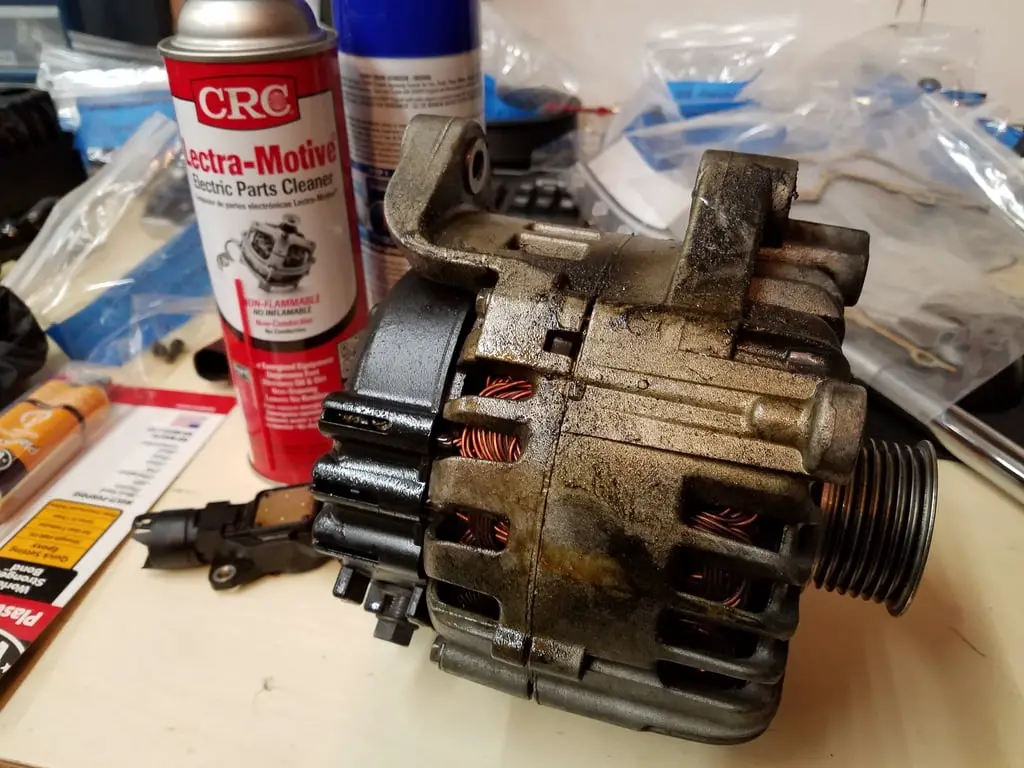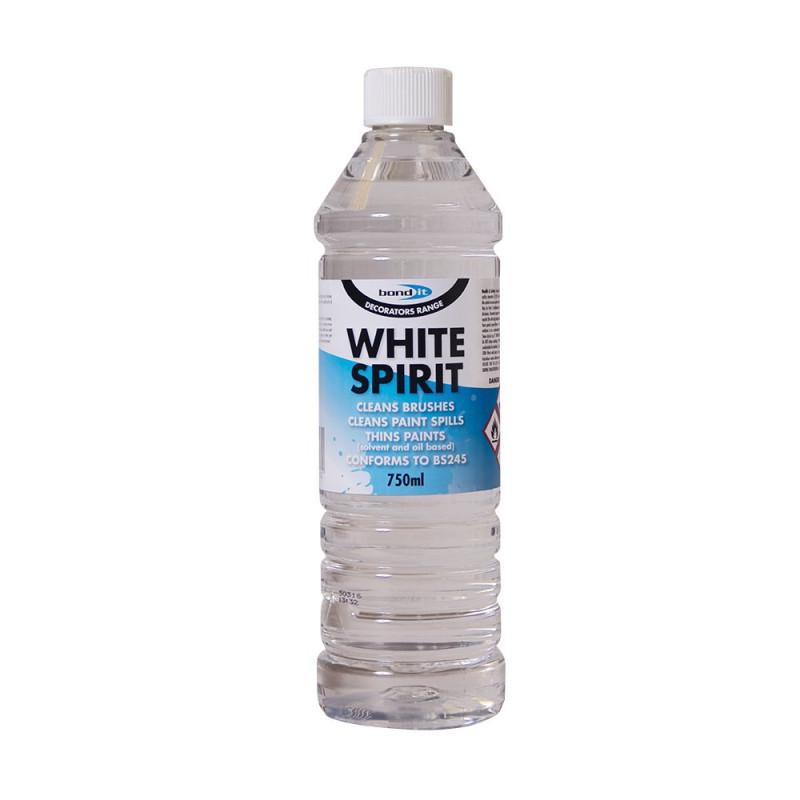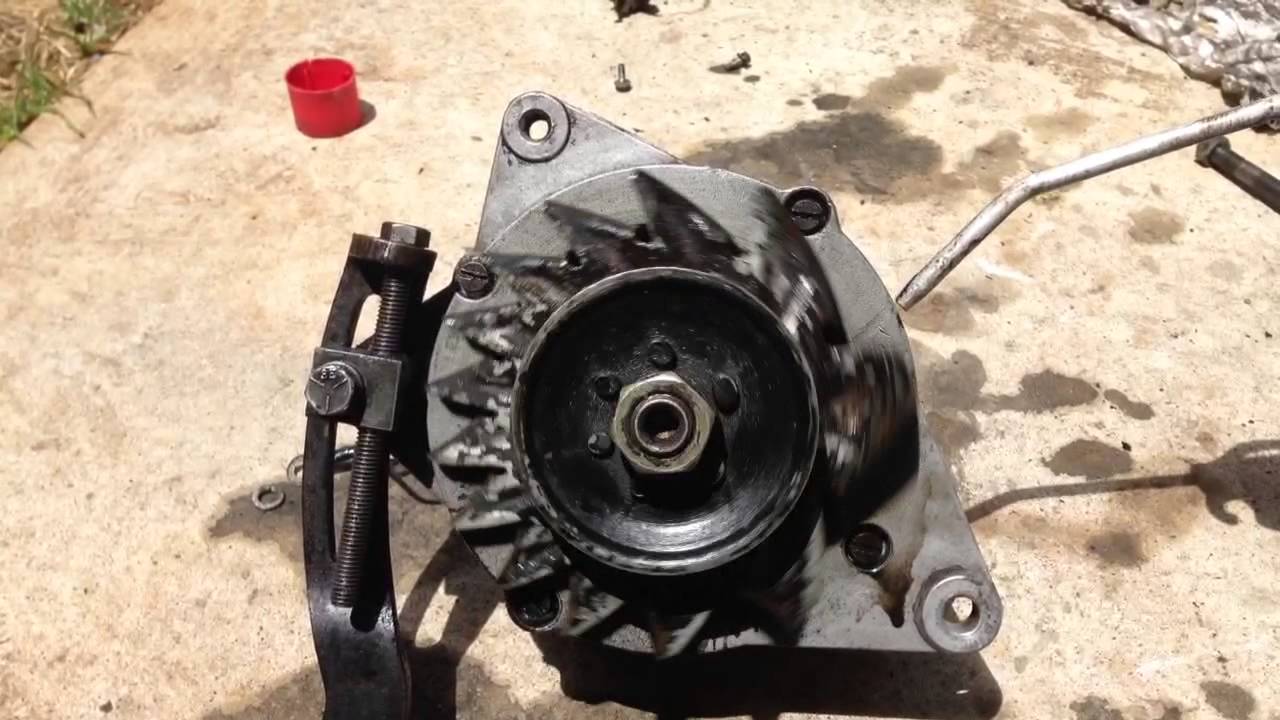Last Updated on August 2, 2023 by Pittalks
Are you looking for a way to clean the alternator but afraid of damage? Then, find out ways on how to clean an alternator keeping it safe in this article.
I have used many different ways to clean my alternator; however, the best method I suggest is using a proper cleaner for the alternator (CRC) or white spirit. You may dilute any off-the-shelf degreaser to the equal mixture with water before applying with a cloth or gently spray. Moreover, allow the cleaner to soak for 5-minutes and then use the soft shot-bristle brush to clean the alternator.
Whether you are a home mechanic or driver, you need to know the correct way to clean a dirty alternator safely, to enhance the performance of your car. So, if you want to learn the accurate cleaning method without damaging your alternator, below is the proper guide on how to clean an alternator.
How to clean a dirty and oily alternator?
The alternator is the electrical generator that generates electrical power for the car and helps charge the battery while your car engine runs. With good maintenance, they are durable and last even for 10-15 years smoothly. The problem arises when oils and dirt start accumulating, and you don’t know how to clean an alternator.
It becomes essential to clean and maintain it properly so that the car’s performance never compromises. But the question always arises how to clean an alternator, and is it safe to clean by yourself? I must say yes, it is safe if done cautiously. Cleaning the alternator involves an easy process. And you do not need any professional tool kit to carry these processes.
Moreover, you can make your alternator clean and new with water and a degrease. However, the below steps will help you to know the process regarding how to clean an alternator.
#Step 1: Preparation
Alternator Cleaners: There are various cleaners available to clean an alternator. But I suggest using the CRC or White spirit for cleaning the alternator.
CRC: CRC cleaner is an evaporating cleaner and degreaser used to clean oily and dirty surfaces. CRC penetrates the hard-to-reach areas. And it flushes away all the dirt, oils, and contamination from the surface. Moreover, it is non-flammable and dissolves grease, oil, and dirt without removing all the parts. Furthermore, I suggest CRC as part of regular maintenance as it increases performance efficiency, longer alternator life, and is anti-corrosion. CRC Electric Cleaner can be used as an alternative to the alternator cleaner.

White spirit: The white spirit is a safe alternator cleaner that is safe to clean alternator windings. It does not dissolve the enamel of the windings. Instead, it evaporates, leaving behind no stains.

An air compressor and portable heating and drying system are necessary after the completion of cleaning. So, it’s essential to have it before you start the cleaning process. Moreover, I suggest drying the alternator after cleaning to avoid any remaining particles and tightly cover the alternator.
Time: It would be best to wait around 4-5 days to dry out the alternator after cleaning. It ensures that the alternator is entirely safe and suitable to use. However, keeping 4-5 days will evaporate the cleaner or water. Along with this, dry out if any water or cleaner material is present.
#Step2: Disconnect the Battery
Remove the battery cables and disconnect to avoid a short circuit. So, you need to remove the negative cable first. Moreover, once the circuit breaks, remove the positive line and keep it aside.
#Step 3: Remove the alternator from the car
Open your vehicle’s hood to remove the alternator from the engine bay of the car. Then, place it on the table where you are carrying out the cleaning process. Moreover, keep the cleaner and brushes by the side of the alternator as you would need while cleaning.
#Step 4: Diluting the Cleaner
Once you choose the cleaner (CRC or white spirit), you should mix these in the ratio of 50:50. Moreover, this mixture would be appropriate to clean an alternator.
#Step 5: Cleaning Process
Use a piece of cloth, soak and apply the cleaner onto the alternator. Then, let it for a while to soften the dirt. Moreover, you may also use a soft short bristle brush to remove accumulated dirt. In addition, focus cleaning on terminal points.
#Step 6: Flush
The final step is to rinse the alternator with water and dry it for 4-5 days. Moreover, use an air compressor or portable drying system to avoid rust. Finally, check all the electrical components to ensure the insulator has no damages or contaminants.
Important cautions when cleaning an alternator
There are essential points to keep in mind while cleaning and avoid any damages. Moreover, there are many do’s and don’ts, so you need to be careful before cleaning. After knowing how to clean an insulator, you should also understand what cautions to take while cleaning an alternator.
Choose the cleaner wisely, keeping in mind what’s suitable for your alternator.
After choosing suitable alternators, avoid spraying or applying directly to air inlet openings.
Avoid using petroleum degreaser
Pressure washing and compressed air could turn worse for the alternator.
You may concern: No Brake Fluid to Rear Brake when Bleeding: Why? How to Fix?
Can you use a pressure washer?
If you’re going to pressure wash your alternator, I highly recommend that you don’t. A car alternator is composed of complex electrical components that can be damaged by the flow of water from a pressure washer. More specifically, you can damage the alternator windings, which is the component that converts mechanical energy into electrical energy, the alternator output terminals, or the alternator diodes deep inside the car’s alternator.
FAQs
Have a look over some common FAQs regarding an alternator.
Why do we need to clean an alternator?
Alternators are a vital element of your car that significantly contributes to the overall performance of the vehicle. We need to clean car alternators as cleaned alternators have many advantages:
Optimize the performance
Extend the lifetime of your car by lowering thermal loading.
Reduces downtime
Reduces damage
No power de-rating
In my opinion, there is an accumulation of loose dirt or oil restricting the airflow. An oil soaked alternator will quickly overheat. So to save the alternator from damage due to excessive heat, it’s necessary to clean an alternator. Moreover, routine inspection and maintenance are essential to minimize problems in the alternator. Most importantly, it would be best to notice vibrations, excessive heat, and noise from the alternator to prevent damage.
Is it safe to wash the alternator?
Cleaning the alternator is necessary to maximize the performance of your car. Moreover, it would be best if you avoid pressure washing of the alternators. However, if you carry out the pressure washing process, you may damage the vehicle. Therefore, in my opinion, rinsing the alternator with water is fine but make sure to dry it. Moreover, you may use a portable drying system to dry it after washing it with water. Furthermore, cover the electrical component before washing it with water. Thus, this may keep your alternator safe from potential damages.
Can you use brake cleaner on an alternator?
Yes, you may use brake cleaner on an alternator. However, you must have some caution before applying it. Some people use this, as it is cheaper than an alternator cleaner. Moreover, there is a risk that liquid gets into the vents. Therefore, it would be best not to spray directly on the insulator lids to prevent damage. Moreover, you can apply with a cloth and gently rub on the surface of the alternator. However, it’s necessary to read the manufacturer’s warning as brake fluid may attack paints and ruin them entirely.
Can I spray WD40 on my alternator?
In my opinion, it is not at all recommendable to spray WD40 to clean the alternator. Although, some of the drivers or mechanics use WD40 to clean an alternator. Moreover, I don’t think you would clean your alternator with WD40 and weaken the winding insulation. Furthermore, using WD40 can cause further damage to your alternator. For instance, it may ruin the alternator by spraying it directly. Moreover, liquid enters into some spots and harms the machine. Thus, I would suggest it would be better to find a cleaner with fewer drawbacks.
What are the signs of a bad alternator?
Sometimes, defective or bad alternators show several symptoms before failing. Moreover, a bad alternator causes potential problems in your car. However, pay attention to these bad signs. Thus, it will help to prevent damage and diagnose the situation in the alternator.
Regular stalling or difficulty in starting your car
Dim lights
Flickering lights
Warning lights showing signaling alternator issue.
A dead battery of your car
Broken or loose connections
Bad belts or missing belts
Strange sounds- Growling or whining noises
Strange smells- burning wire or rubber smell
Slow accessories or any malfunctioning in accessories
Can oil damage my alternator?
Yes, the oil may damage the alternator as most of the vehicles have an air-cooling system alternator. Moreover, applying oil may coat the cooling system and thus, affect its function. As a result, there will be overheating and failure of the alternator. Furthermore, the oil may cause slippage if applied to the drive belt. Thus, this action will also affect the charging rate of the alternator. With that said, the oil may cause alternator failure.

